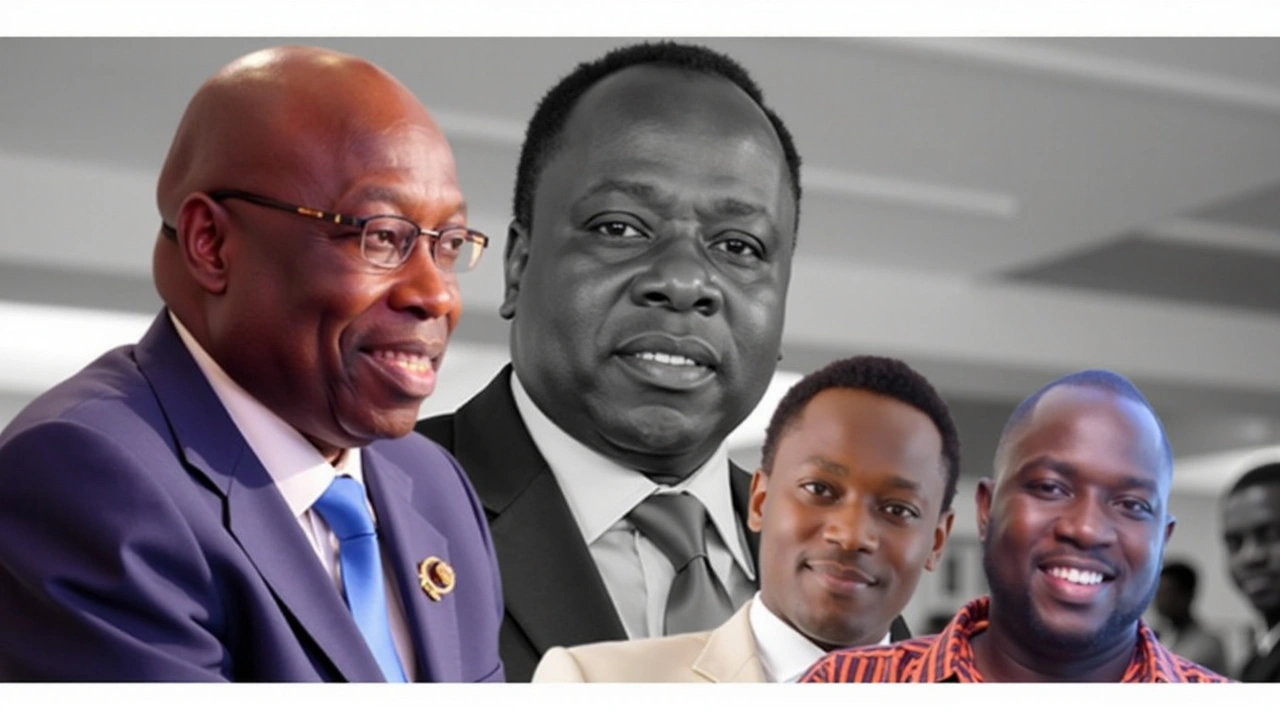Understanding the Impeachment Trial Against Kenya's Deputy President
The political landscape in Kenya is rife with anticipation and tension as Deputy President Rigathi Gachagua prepares to face an impeachment trial in the Senate. This complex process, which determines the fate of the country's second-in-command, is reminiscent of the political ordeal faced by his late brother, James Nderitu, who served as the Governor of Nyeri. As the nation turns its eyes to the Senate, the trial scheduled for October 16 and 17, 2024, becomes a significant event in the political calendar, possibly extending into October 18 if deliberations require. The outcome of this trial will not only shape Gachagua's political future but also set a precedent for how high digital and public office in Kenya can be scrutinized and held accountable.
The Historical Echoes of James Nderitu's Trial
Rewind to eight years ago when James Nderitu, then Governor of Nyeri County, faced an impeachment process that echoed in the annals of Kenyan politics. On September 2, 2016, Nderitu was impeached by 35 of the 47 members of the Nyeri County Assembly. It was a political storm that seemed almost insurmountable until the Senate reviewed the case and cleared him of any wrongdoing. This precedent is especially significant for Gachagua as he once again finds his family name in the crosshairs of political judgment. In the same vein, Deputy President Gachagua hopes for a similar favorable outcome as he walks a path fraught with political landmines.
Senate's Role and Gachagua's Strategy
The Kenyan Senate plays a pivotal role as it acts as the constitutional trial chamber executing quasi-judicial functions in impeachment proceedings. For Gachagua, the stakes are exceptionally high, and winning the support of at least 23 senators is paramount for his survival. Reports suggest his numbers are worryingly below the halfway mark, adding pressure to his fightback plan. Aware of the crucial role the Senate plays as an impartial seeker of justice, Gachagua and his team have been working tirelessly to rally senators to their cause. Murang'a Senator Joe Nyutu's loyalty serves as a beacon of support, yet there are still significant hurdles to overcome. The deputy president has expressed sincere apologies to President William Ruto, Parliament, and the people of Kenya in a bid to garner an empathetic view of his plight.
The High-Stakes Game of Political Numbers
In the political arena, numbers are power, and for Gachagua, the task at hand is essentially a numbers game. His ability to secure the support of key senators will determine whether he leaves the Senate trials unscathed or must face an untimely end to his tenure. However, opposing voices remain vocal, with Kapseret MP Oscar Sudi expressing a determined stance against Gachagua's retention. Sudi's assertion that 'nothing will save Gachagua' adds to the intense pressure that Gachagua must confront as he navigates through this trying period. The strategic orchestration of political alliances will test the mettle of Gachagua's political acumen over the coming days.
The Implications of a Possible Impeachment
The impending trial holds not only personal but national implications. As the second-in-command, Gachagua's potential impeachment could upset the stability of the current administration and alter the political discourse in Kenya. The trial invites intense public and international scrutiny, with the reputational risks associated with impeachment pervading every level of governance in Kenya. It raises probing questions about governance, accountability, and the sheer dynamism of political power plays within the nation. How this trial unfurls will resonate far beyond Kenyan borders, influencing perceptions of the political resilience and commitment to democratic processes within the country.
Conclusion: A Trial with Far-reaching Consequences
As Deputy President Rigathi Gachagua stands on the cusp of one of the most challenging periods of his career, the spotlight reveals not just the complexities of his current predicament but also the foundational tools of political power within Kenya. The expectation of a decisive trial outcome looms large, promising to redefine Gachagua's political trajectory for better or worse. Observers and constituents alike remain on edge: will history repeat itself, favoring Gachagua as it did his brother? Or will this trial script a new chapter in how robustly the Kenyan government upholds political integrity and fairness in its highest offices? Time alone will unfurl the narrative, but the ramifications of the Senate's decision will undeniably leave an indelible impact on the political fabric of Kenya.


Diksha Sharma
October 16, 2024 AT 23:16Akshat goyal
October 17, 2024 AT 14:39anand verma
October 17, 2024 AT 17:04Amrit Moghariya
October 19, 2024 AT 03:51shubham gupta
October 19, 2024 AT 07:06Gajanan Prabhutendolkar
October 19, 2024 AT 16:08ashi kapoor
October 21, 2024 AT 05:04Yash Tiwari
October 21, 2024 AT 06:39Mansi Arora
October 23, 2024 AT 06:36Amit Mitra
October 25, 2024 AT 06:26sneha arora
October 26, 2024 AT 11:04